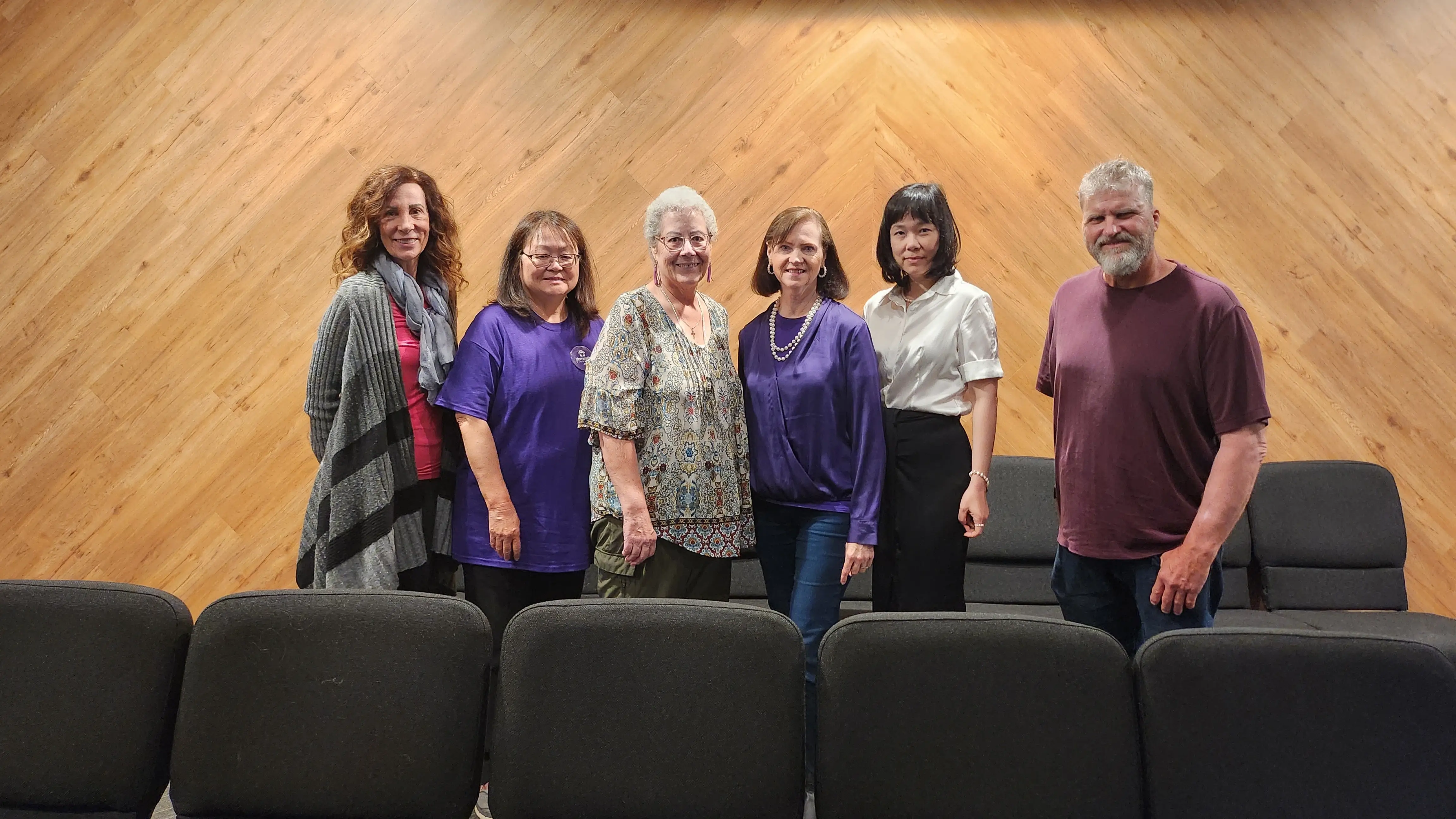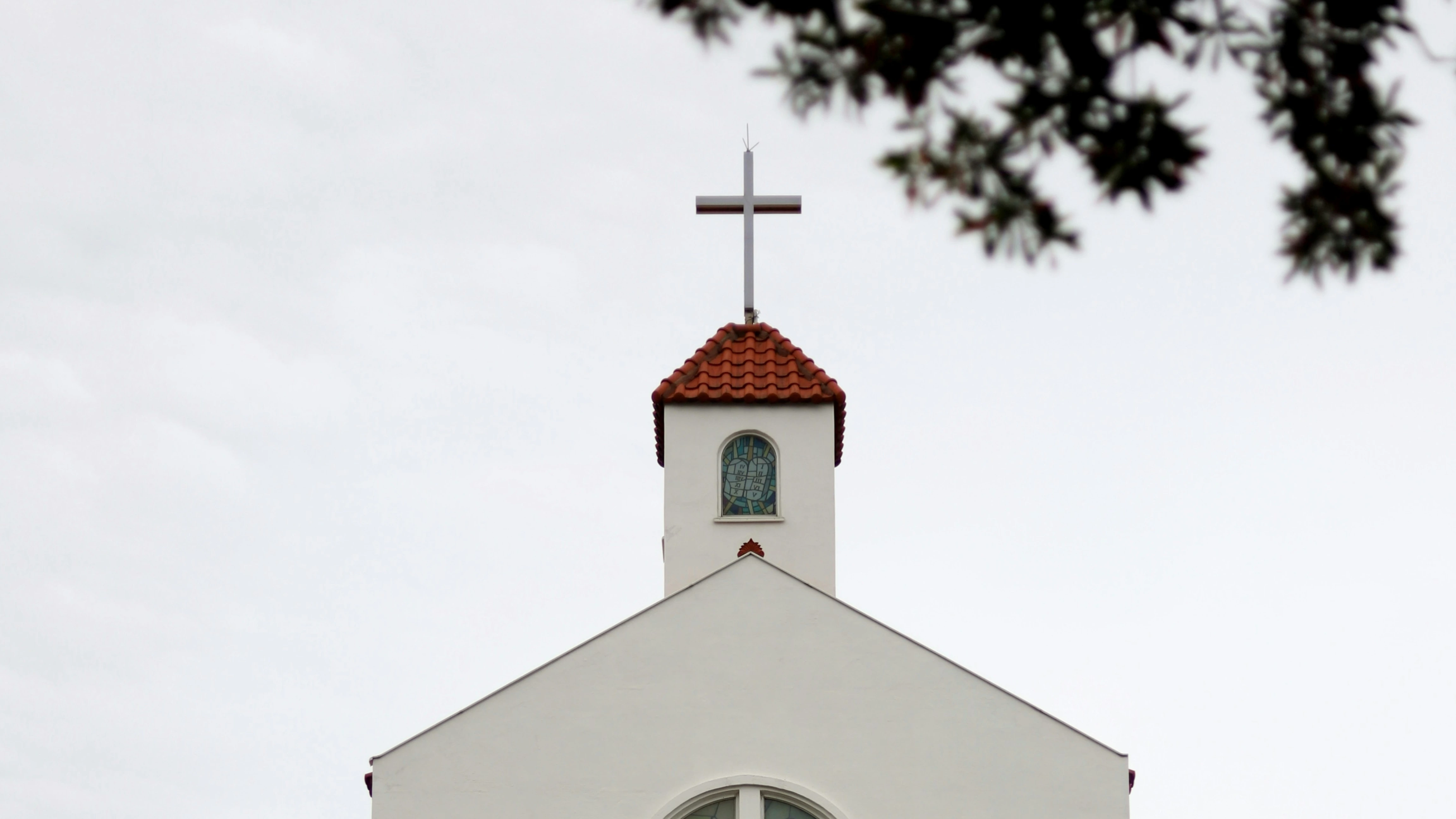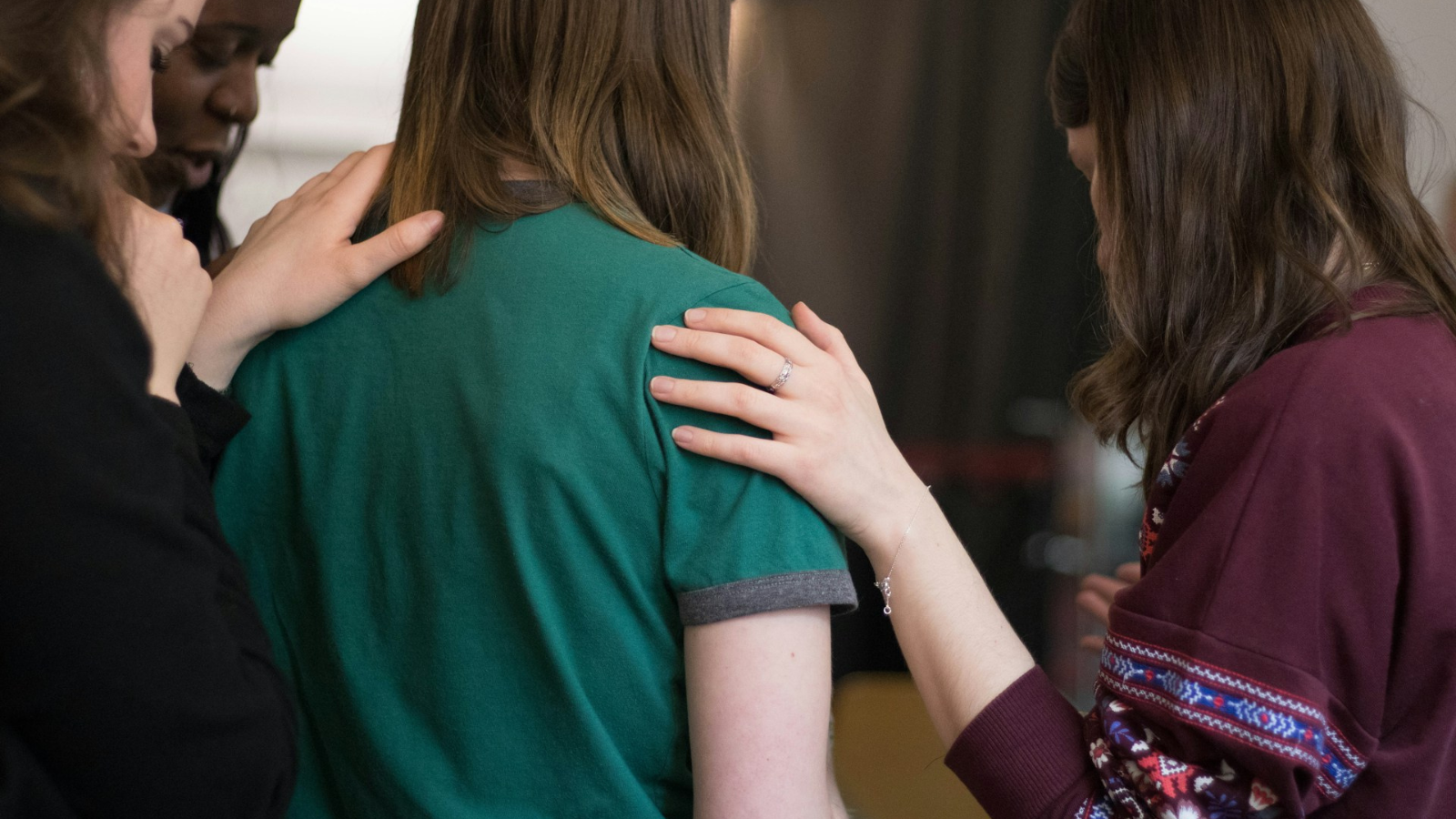
Attendees of a Quarterly Action Team meeting at Efree Church Diamond Bar greet one another on June 4. A Quarterly Action Team is made up of members from a local congregation, designed to educate Christians about domestic abuse and relational awareness. Photo by Madison Luc
Content Warning: This article contains explicit descriptions of physical, sexual and emotional abuse.
The family is often considered the cornerstone of society, and in Ephesians 3:14-15, we read that God is the one “from whom every family in heaven and on earth derives its name.” Yet, as we live in a fallen world, sometimes these bonds are broken by sin, including the evil of domestic abuse.
Domestic Kindness is a nonprofit that works with local church congregations to educate Christians about the true darkness and wickedness of domestic abuse while maintaining hope, with a goal of providing solutions, restoring relationships and promoting reconciliation.
About 1 in 4 women and 1 in 7 men have experienced severe physical violence by an intimate partner, according to a study conducted by the CDC. These acts of violence include “being hit with something hard, being kicked or beaten, or being burned on purpose.”
Domestic violence is a real and widespread scourge, yet not all members of the Church are aware of the impact.
Only about 50% of congregations have a plan for responding to someone sharing they are experiencing domestic violence, according to a 2017 report by LifeWay Research.
In addition, 46% of pastors that refrain from speaking about domestic or sexual violence each year believe, “It is not a problem in our [their] congregation,” according to a 2018 report by LifeWay Research.
The body of Christ is called to faithfully minister, to serve those in need around them.
How can we serve others if we do not invest time and resources in understanding what these needs are?
James 2:16 asks, “If one of you says to them, “Go in peace; keep warm and well fed,” but does nothing about their physical needs, what good is it?”
Just as the Church seeks to provide necessities like food and housing, believers must also recognize the need for education about abusive domestic relationships.
Mabel Pearce, the President of Domestic Kindness, said she intends for every Christian to know and raise awareness of domestic abuse. First, believers must be able to identify domestic abuse.
Abuse is not always physical.
Domestic abuse is a “pattern of hurtful behavior in a relationship that is used by one person to gain or maintain power and control over another person,” according to Domestic Kindness. “It can be physical, sexual, emotional, economic or psychological actions or threats of actions that influence another person.”

Mabel Pearce (third from right) and members of her Action Team. Photo by Madison Luc
Pearce said she shaped her vision for the organization 2017 in response to a friend’s challenge: to think of a ministry that she would be passionate about. At the time, she had already conducted research and heard stories from people about their experiences with abuse.
“I thought, ‘Wow, what I would love to do is educate Christians about the epidemic of domestic abuse,’” Pearce said.
Pearce’s journey started in 2010, when she began learning about the nature and ramifications of abuse from those with firsthand experience, she said. Growing up, she too experienced trauma from witnessing domestic abuse.
“I grew up in a home that was Christian,” Pearce said. “We were in church every time the doors were open. But at home, it was chaotic. My stepfather was very abusive, and my mom would fight back.”
Others living in a situation with domestic abuse often seek guidance from Christian friends or leaders but receive poor advice, Pearce said. This advice could exacerbate existing concerns.
“They were treated as if it was a marriage problem,” Pearce said. “And that just made matters worse and kept them stuck in the abuse for many years.”
Domestic abuse is not a marriage problem — it is a sin problem. Abuse, in all circumstances, is a sin and directly against Christ’s commandment to love God and one’s neighbor in Mark 12:30-31.
“They [poor advisors] put a lot of pressure on the victim to make changes when the victim needs help,” Pearce said. “The victim doesn't need more pressure, because they've already got so much pressure just living in this marriage that is so oppressive.”
For two years, 2017-2018, Pearce said she was busy learning, planning, training, organizing and putting a small team together. In 2019, Domestic Kindness led two workshops and was incorporated as a 501(c)(3).
“The epidemic of domestic abuse must be tackled by the church through education,” Pearce said. “Every believer needs to know how to respond to a victim.”
Victims cannot receive aid from other organizations unless they have separated from their abuser, Pearce said. Responding to domestic abuse from a Christian perspective is radically distinct from a secular outlook.
“It's different in the Christian community because we know that God can change an abuser,” Pearce said. “So we have that allowance because we know that that can happen, so we approach it differently.”
One way a congregation can advocate for awareness and education is by speaking about domestic abuse from the pulpit. This attention shows members that the church leadership cares about this issue.
“A lot of pastors are not comfortable talking about it, because they just have limited knowledge,” Pearce said. “But if they will just invite a speaker to come for 20 minutes, once a year. That's huge.”

Quarterly Action Team meeting in session. Mabel Pearce led the meeting. Photo by Madison Luc
An essential component of Domestic Kindness’ programming are their action teams. These task forces allow all members of the Church to get involved, rather than only leaders such as pastors or elders.
“The first workshop was geared for the leaders, and we only invited the church leaders, and there were 100 church leaders that were invited,” Pearce said. “And out of all those, we had about 20 who came, and it was very disappointing for me, because this is so important for them to know.”
Pearce said this outcome caused her to rethink her strategy. Instead of focusing on church leaders, she focused on a larger audience — all members of the body of Christ.
An Action Team is made up of believers from a local congregation whose aim is educating themselves and preparing others to respond to domestic abuse, Pearce said. Action Teams meet regularly and are the primary method of encouraging and implementing change in a community.
“The Action Team itself doesn't require a lot of training,” Pearce said. “It's the leader that kind of takes charge.”
The leader of an Action Team is responsible for rallying their local church as an ambassador for Domestic Kindness, Pearce said. Their responsibilities include meeting with the leaders of the congregation, planning events, inviting speakers and delegating tasks to other members.
A central goal of an Action Team is to lead or partner with group leaders to create bible studies on relational awareness.

The Action team prepared and served food and refreshments for attendees. Photo by Madison Luc
Domestic Kindness has developed their own study guide, titled “Relational Awareness,” available for purchase on Amazon for $10. The study is designed to help readers develop an embodied and lived-out understanding of Scripture, in which they learn how to recognize red flags in relationships, how to help those in abusive relationships and how to identify a healthy relationship.
Christians should not blame victims of domestic abuse; instead, it is the abuser who is responsible and at fault. In love, not condemnation, believers can call out the abuser’s sin and restore them gently, as Galatians 6:1 exhorts.
The body of Christ must be proactive, not passive, and tend to those who are hurting — those who are suffering from domestic abuse.
“If not Christians, then who?” Pearce said.














